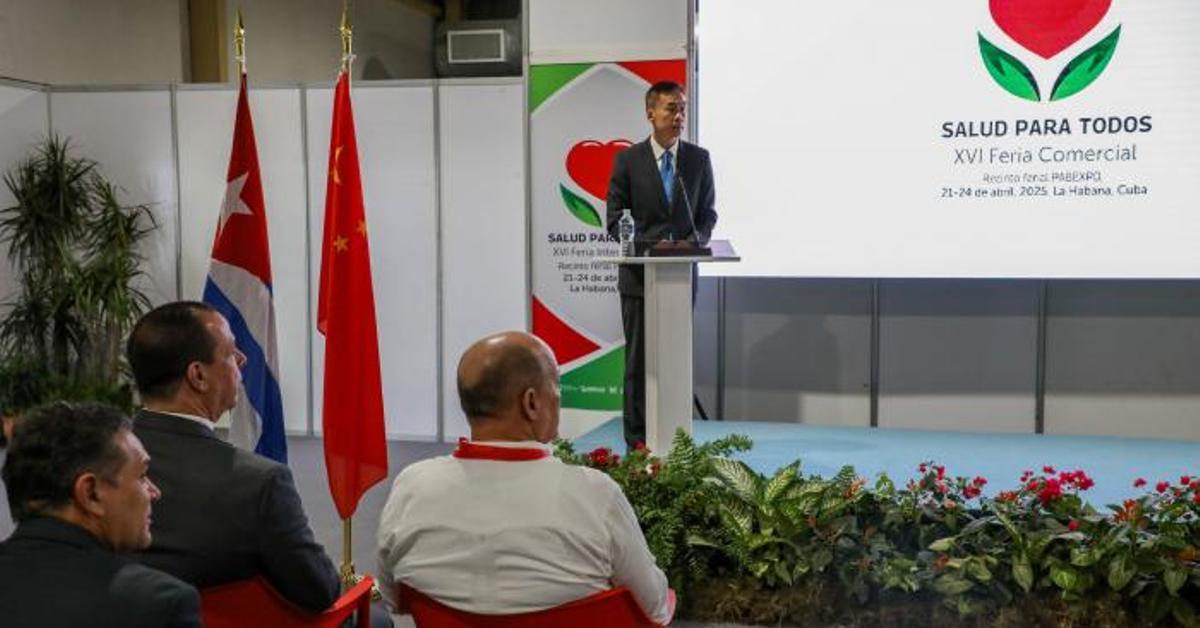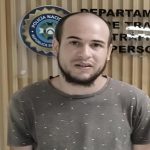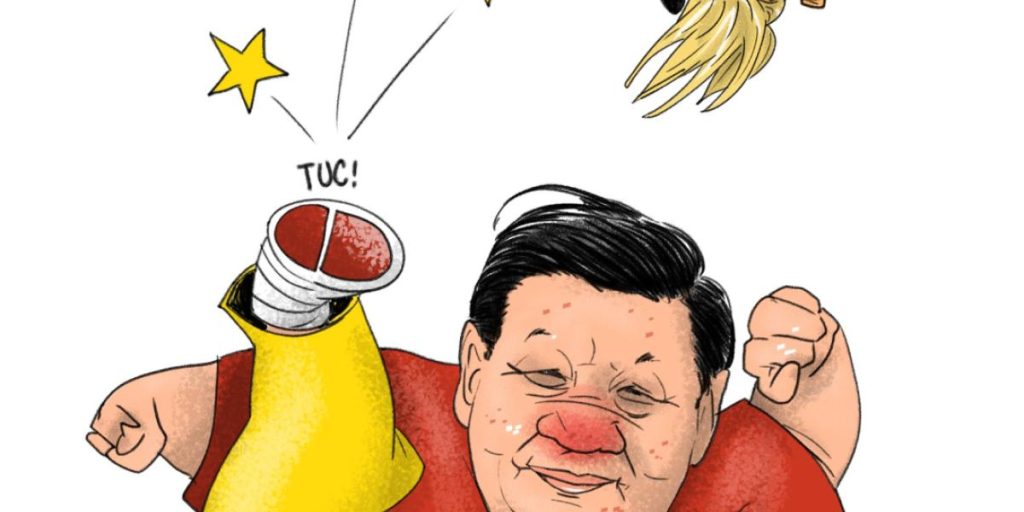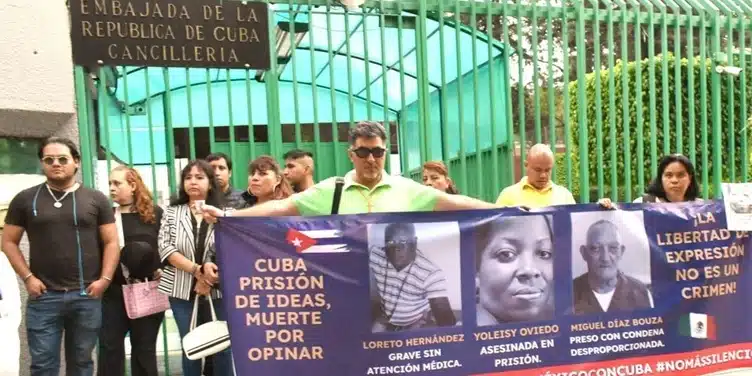Madrid/Before the offensive of their adversaries against the sale of medical services abroad, denigrated by the low quality of benefits and the exploitation of personnel, the Cuban regime multiplies the initiatives in search of international support that allows it to preserve its main financial resource.
The idea has been reflected in recent weeks in the official press and, more marked, in the V International Cuba-Salud 2025 Conventionwhich began last Tuesday in Havana and ends on Friday, more focused than ever on the search for international alliances, the main one, with China, one of the few countries indifferent to Washington reprisals.
The Asian giant, which maintains a cooperation program with Cuba since 2006, renewed its alliance through five contracts for Cuban medical services in China, including the construction of the Chinese-Cuba International Hospital of Friendship at the University of Hebei, according to Public Health Minister José Angel Portal Miranda.
“China already joins the conviction that health cannot be a privilege of a few, but a right of all”
“China already joins us the conviction that health cannot be a privilege of a few, but a right of all,” he said during the opening speech of the forum. The minister highlighted the importance of Beijing “as a strategic partner in the health development of the Nation and in the promotion of a southern cooperation model in health.” Among the main areas in which they plan to collaborate are biotechnology, primary care and emergency response.
In addition to the known hospital in Hebei, Portal Miranda spoke of an International Development Stomatology Center, as part of the Chinese-Latin America Industrial Park project-located in Havana-, and 15 Chinese agencies linked to health tourism in Cuba, with signed contracts for specialized medical services.
China, said the minister, is a leading partner in the importation by Cuba of medicines and medical equipment, but a good part of the session revolved around education. “We have graduated 666 Chinese professionals in our universities, and now we seek to expand the exchanges,” said Portal Miranda, who highlighted the signing of an agreement for research together with the University of Traditional Chinese Medicine of Henan.
In the biopharmaceutical sector, the collaboration is not far behind, since there are 20 Chinese companies that participate in the event showing technologies and teams, although in that field the European Union enters Liza as well. The twenty -seven are the main technology suppliers “and a source of biocubafarma financing projects”, both parties underlined in a panel organized yesterday also within the framework of the Convention.
In the event it was announced that the Cuban pharmacist generated in recent years – without specifying the exact period – more than 1.2 billion dollars in export, the majority in Latin America (42.6%), followed by Asia (39.1%) and the Gulf and the Middle East (13.6%).
In the event it was announced that the Cuban pharmacist generated in recent years – without specifying the exact period – more than 1.2 billion dollars in export
The intention is to continue advancing and increase the sales of some of the medications that monopolized prominence in the talk, including Neuroepic (for Alzheimer’s), the JM-20 (for neurodegenerative diseases and that will now begin rehearsals in humans) and the Heberprot-P (Tissue Regenerator), in addition, of course, of the vaccines.
So far, this type of cooperation was done through subsidies, but now the idea is to maximize results, which introduces the concept of Global Gateway. Its essence is to concentrate, accumulate and achieve greater scope, from few funds that mobilize great resources.
Pharmaceutical management was no less important and the Chinese were there again, to tell that it is a priority to optimize it and guarantee security in the use of medicines. “Also in the prescription, such as a bridge in patient education,” said Wang Kai, general director of the National Institute of Hospital Management of China, who spoke of the importance of controlling recipes, a clear pending subject in Cuba, where the shortage of medicines has favored a greatly lucrative black market.
The solution to that scarcity was in another of the premises of the enclosurethe one in which the I forum of Cubans of the health sector residents abroad. “With only 25 days without locking, we could have acquired the financing to cover the basic drug table in the country for a year,” said Ana Teresita González Fraga, general director of Consular and Cuban Affairs residing abroad, which intervened in the event.
“With only 25 days without locking, we could have acquired financing to cover the basic medication picture of the country for a year”
There 30 sanitary ones that reside abroad, as well as another 360 by internet connection met face -to -face. The authorities managed to involve doctors from more than 50 countries, including Canada, Italy, the United States, Germany, Serbia and the United Kingdom, who said they were grateful to the revolution that formed them. “You, who have led the knowledge learned on this island and multiplied their experience in other contexts, are here because you have not stopped looking towards their country with affection, with pride and with the will to contribute to their development,” said Minister Portal Miranda before giving way to those who gave their testimonies.
The majority of the participants, some of them volunteers and not specialists, collaborate with “solidarity groups” that send help containers or work in medical programs together with hospitals of the island. Among the needs that underlined were to create a virtual network to connect Cubans of health abroad, training through the exchange of courses and experiences between professionals inside and out of Cuba. and Coordination of shipments between countries, and the most important thing for the Government at these critical hours: to disseminate their version of Cuban doctors on social networks.


















